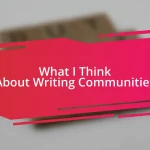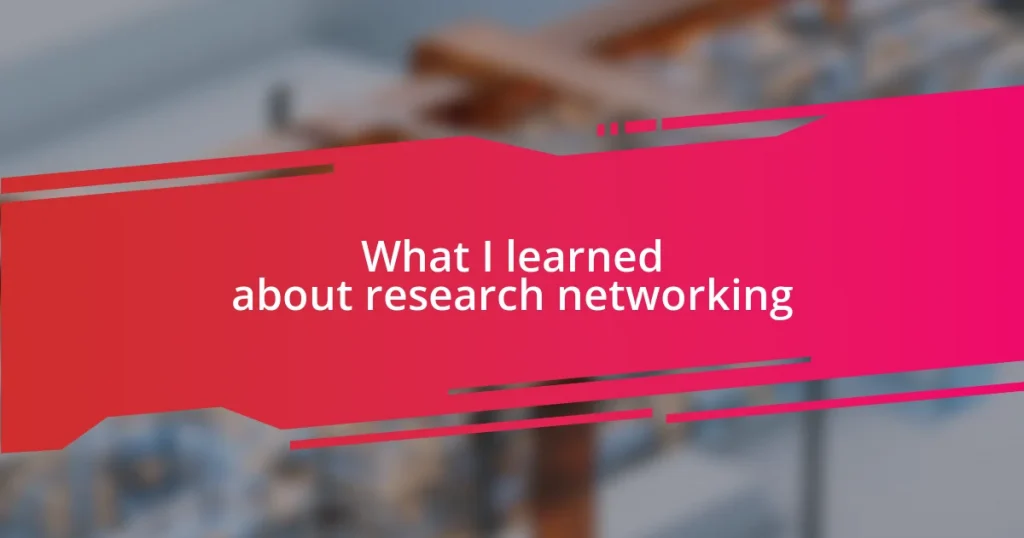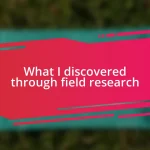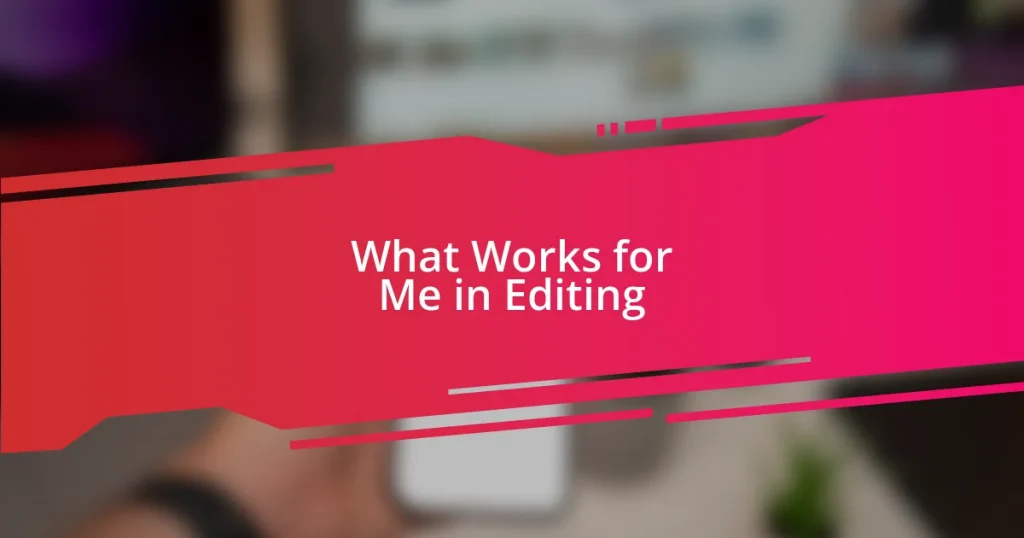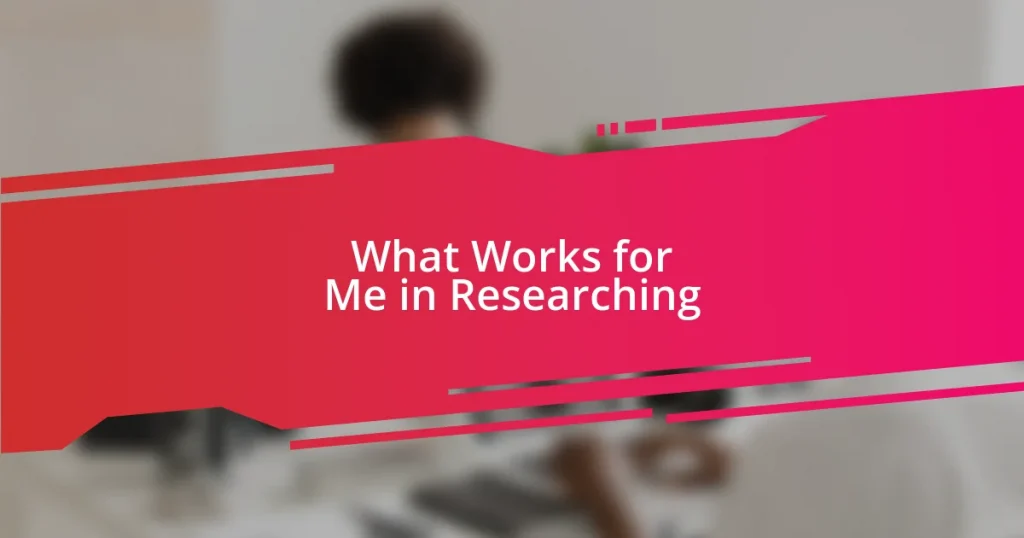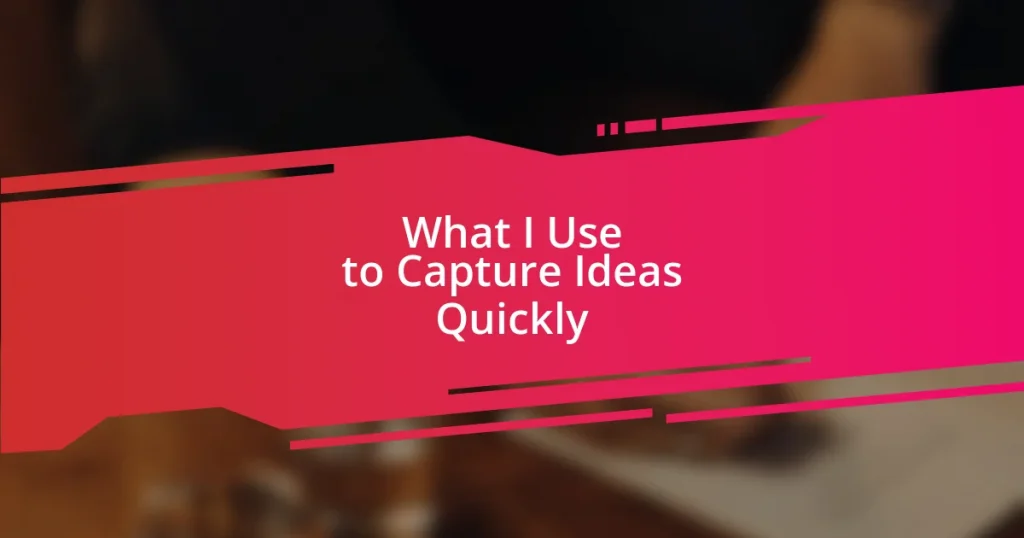Key takeaways:
- Networking opens doors to collaborative projects, funding opportunities, and emotional support, enhancing the research experience.
- Effective communication strategies, like active listening and sharing personal stories, foster genuine connections in both in-person and online interactions.
- Maintaining long-term professional relationships involves regular communication, offering support, and celebrating milestones, which strengthens bonds and encourages mutual growth.
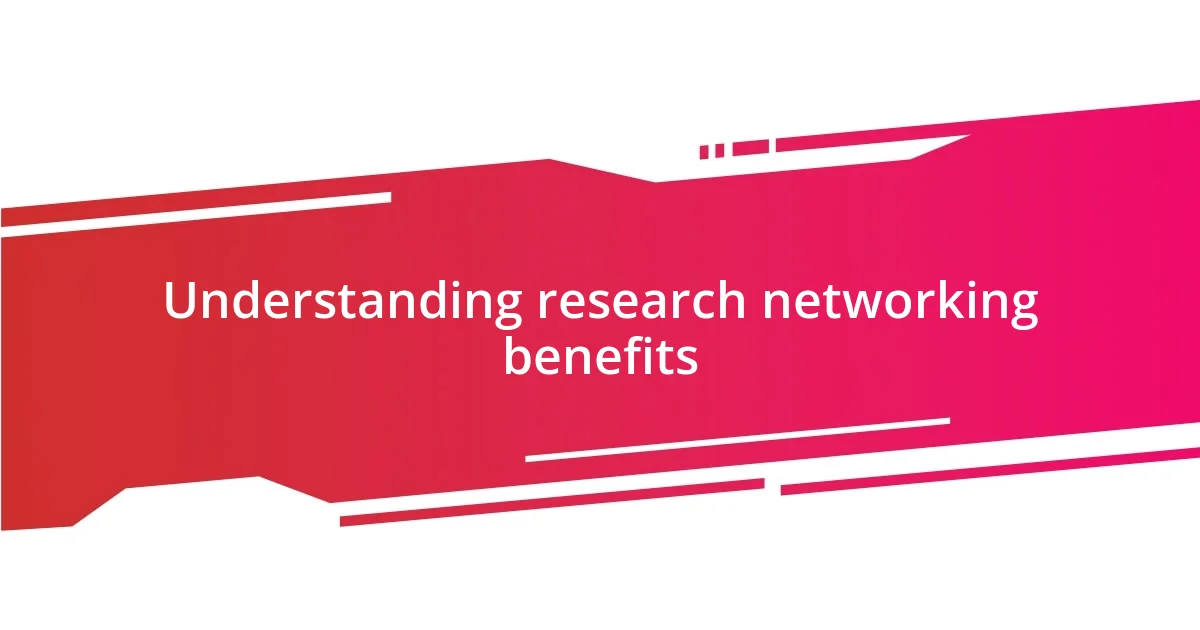
Understanding research networking benefits
Connecting with my peers in research has been one of the most rewarding aspects of my academic journey. I’ve often thought about how many doors open when you build relationships with others in your field. It’s not just about exchanging ideas; it’s about forging partnerships that can lead to collaborative projects, funding opportunities, and even lifelong friendships.
When I attended my first conference, I was amazed by how a simple chat over coffee could lead to a fruitful collaboration. I didn’t just leave with new contacts; I also returned home with fresh perspectives and innovative ideas that reshaped my approach to a project I’d been struggling with. Isn’t it fascinating how a single conversation can spark a breakthrough?
The emotional support that comes from networking is often overlooked, yet it’s incredibly vital. There have been times when I felt isolated in my research, grappling with the weight of expectations. However, finding others who shared my struggles brought a sense of belonging that I didn’t even know I needed. The shared understanding and encouragement from my network have propelled me forward during challenging times. How has connecting with others positively impacted your research journey?
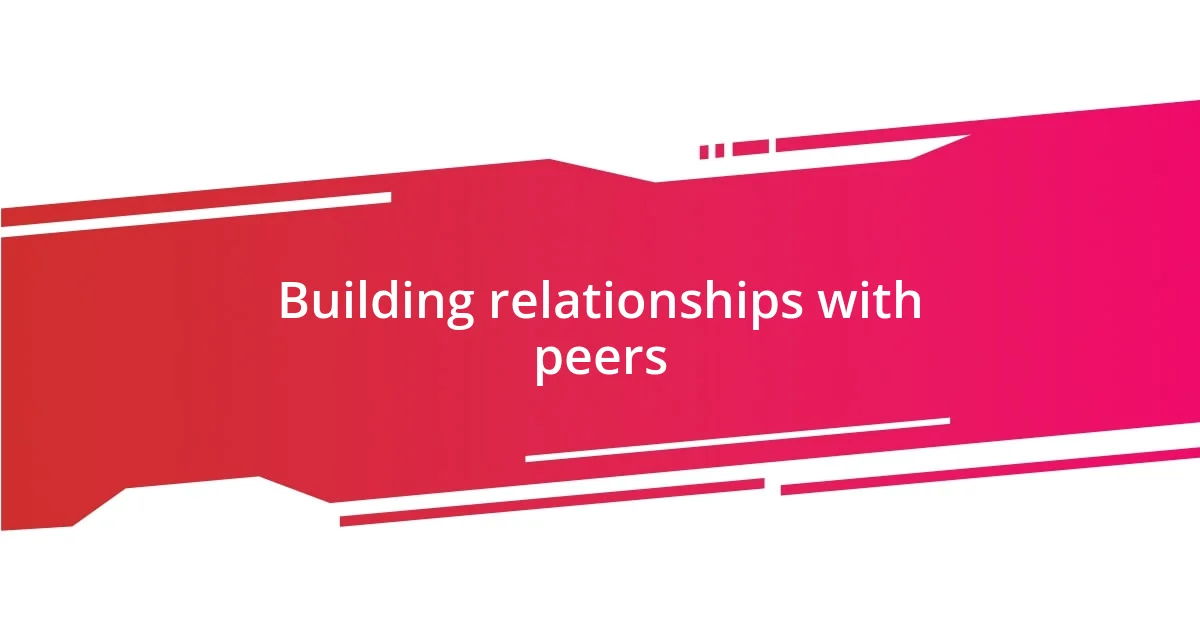
Building relationships with peers
Building relationships with peers in research is like planting seeds for future collaborations. I’ve noticed that nurturing these connections requires intentional effort. For example, during my time at a workshop, I spent extra time reaching out to participants after each session. This effort led to deeper discussions and the realization that many of us faced similar challenges in our studies. That very experience reminded me how important it is to create a safe space for open dialogue.
Another memorable moment for me was at a local seminar. I struck up a conversation with someone whose work complemented my own. It wasn’t until later that we decided to co-author a paper, which turned into an amazing opportunity for both of us. I learned that sharing vulnerabilities and discussing our aspirations can lead to unexpected outcomes. These peer relationships often flourish when we dare to share our journey, not just the successes but also our struggles.
I’ve also recognized that building these connections doesn’t stop at conferences. Engaging with peers through online platforms, such as social media groups or academic forums, can maintain and strengthen these bonds. The more I interact online, the more I realize that ongoing communication fosters a sense of community. Have you ever experienced a lasting impact from a seemingly random interaction in your research journey? I can tell you; it’s moments like these that transform our academic experiences.
| Aspect | In-Person Networking | Online Networking |
|---|---|---|
| Engagement Level | High – Face-to-face interaction fosters deeper connections | Variable – Depends on participation and follow-up |
| Opportunity for Collaboration | Easier to gauge body language and enthusiasm | Can connect with a wider audience across geographies |
| Emotional Impact | Instant support and encouragement | Can feel less personal, requiring more effort to build rapport |
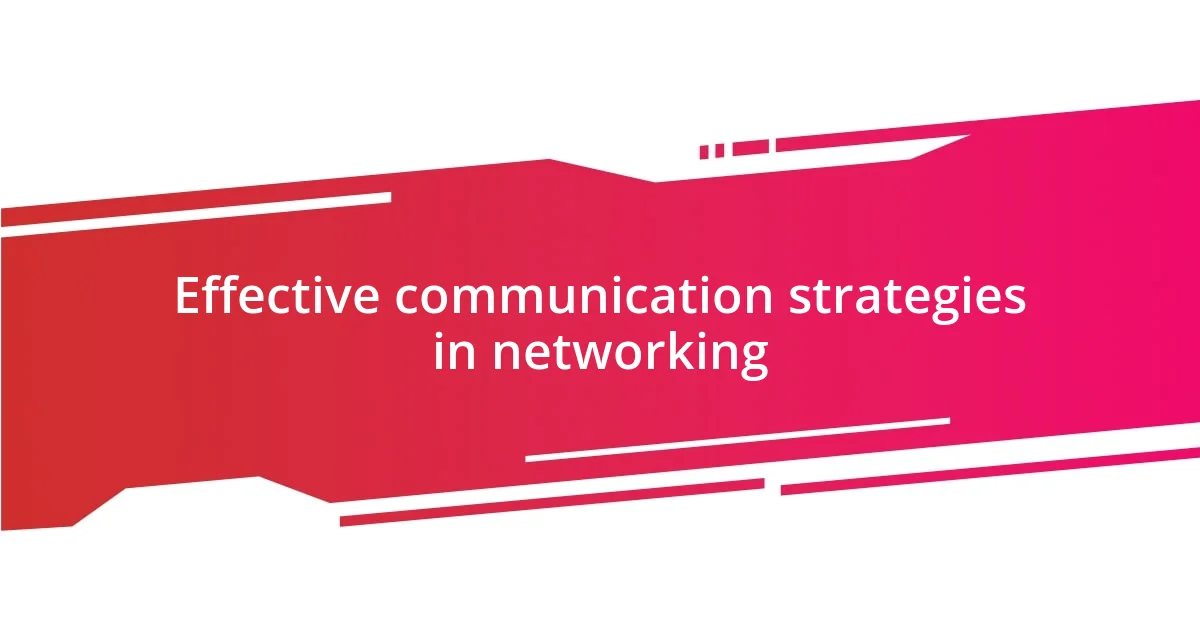
Effective communication strategies in networking
Effective communication in networking is essential for fostering genuine connections. I’ve discovered that the best way to engage others is through active listening. When I focus on what the other person is saying, I create an environment where they feel valued. This approach helped me during a networking event when I truly listened to a researcher share their struggles. By responding thoughtfully, I learned more about their work and built a rapport that led to collaborative opportunities.
To enhance your networking communication, consider implementing the following strategies:
- Be genuine: Show authentic interest in others’ work and experiences.
- Ask open-ended questions: This encourages deeper conversations and shows you value their perspective.
- Share stories: Personal anecdotes can break the ice and make you more relatable.
- Follow up: Send a message after your initial meeting to reinforce the connection and express gratitude.
- Be concise: Respect others’ time by keeping your exchanges clear and to the point.
I recall a moment when I met a fellow researcher at a seminar. As we chatted, I shared a brief story about a challenge I faced in my current project. This prompted them to open up about their own experiences, leading to an unexpected exchange of ideas. The conversation didn’t just make networking feel less daunting; it turned into an exciting brainstorming session that benefited us both.
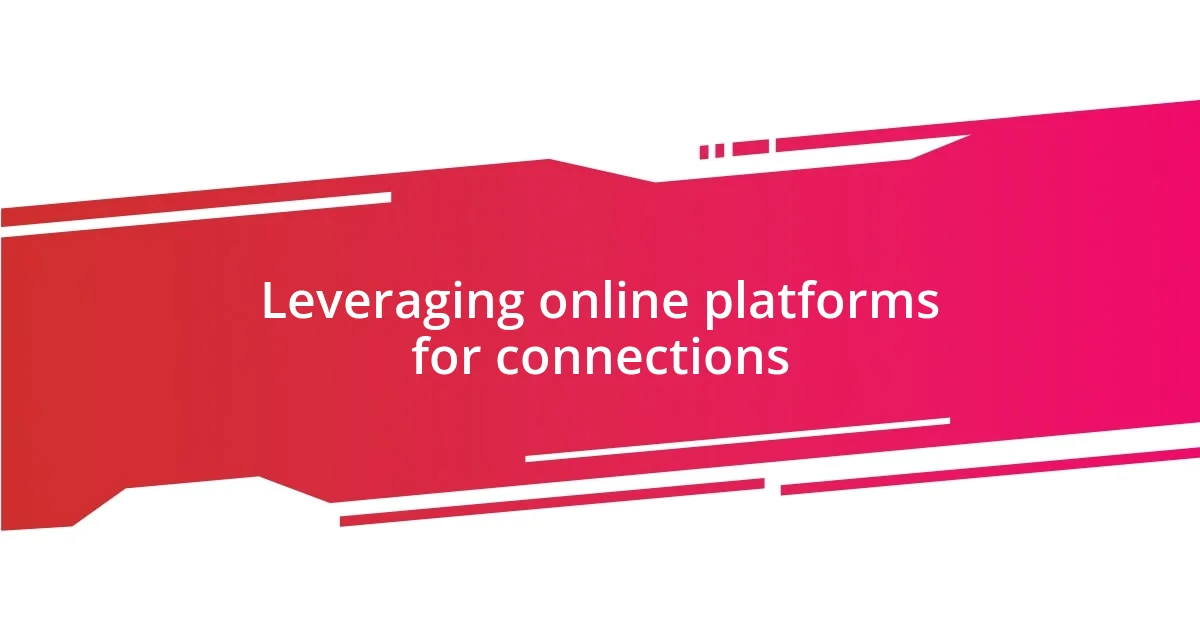
Leveraging online platforms for connections
Online platforms have become a crucial tool for connecting with peers in research. I vividly remember the first time I joined a professional group on LinkedIn. Initially, I felt a bit intimidated, unsure of how to introduce myself. But after sharing a post about my latest results, I received encouraging feedback and even sparked conversations with researchers from across the globe. It was a reminder that our work can resonate with others, even when we’re not in the same room.
Social media, particularly Twitter, has also played a significant role in my networking journey. I often participate in hashtag discussions like #AcademicTwitter, where researchers exchange insights and resources. One evening, I tweeted a question about data analysis challenges I was facing. Within hours, I had responses from diverse professionals, some of whom offered solutions while others invited me to collaborate. I often marvel at how a simple tweet can lead to valuable discussions, bringing people together in unexpected ways. Have you ever been surprised by the support you received online? I find that these digital connections can be incredibly powerful.
Utilizing academic forums such as ResearchGate has also enhanced my networking experience. I remember submitting a question about a niche topic in my field, and within days, several experts responded with thoughtful insights and even shared relevant papers. It made me realize how these platforms allow us to tap into a wellspring of collective knowledge. Engaging actively on these sites fosters a sense of community, transcending geographical barriers and time zones. The more we participate online, the richer our research network becomes.
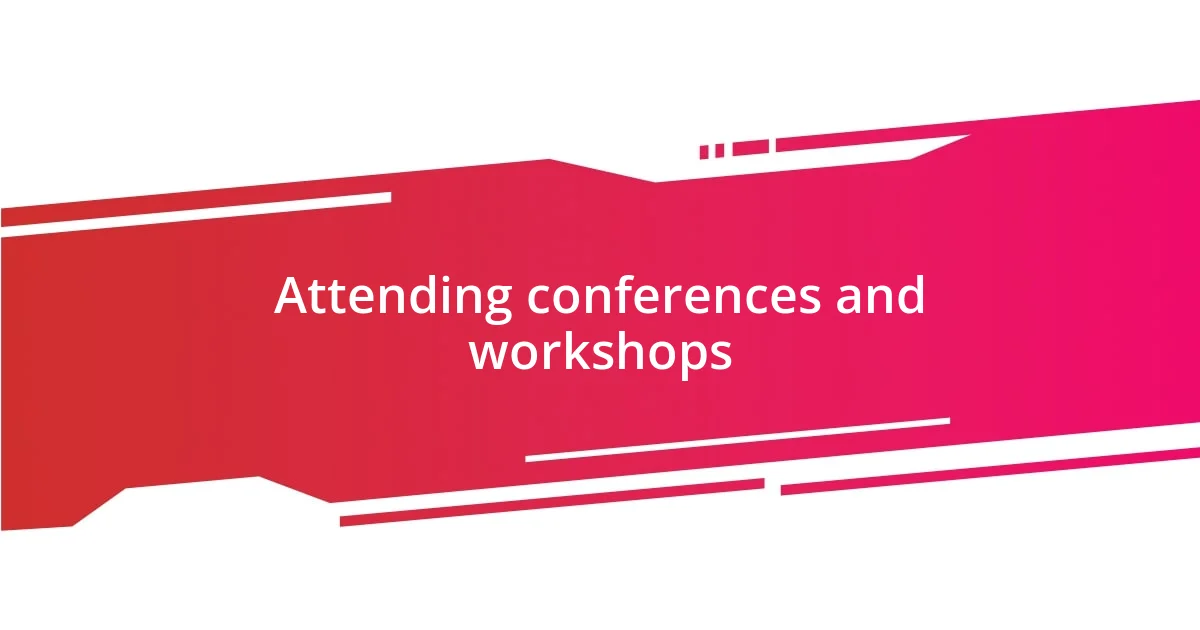
Attending conferences and workshops
Conferences and workshops have been pivotal in my research networking journey. I still remember my first academic conference vividly; I was both excited and nervous. As I walked into the venue, the atmosphere buzzed with anticipation. Listening to speakers present their work ignited my curiosity and made me realize the value of face-to-face interactions. I found that informal conversations during coffee breaks often led to the most enriching exchanges. Have you ever noticed how casual chats can transform into brainstorming sessions that push your ideas further?
At one workshop, I met a researcher whose work aligned closely with mine. During our discussion, I shared my research goals, and to my surprise, they offered to connect me with colleagues who could provide additional insights. This moment showed me how networking isn’t just about what you know, but also about who can help broaden your perspective. From that experience, I learned the importance of being open to collaborations that may come unexpectedly.
Attending sessions where I could engage with panelists and ask questions made a huge impact on my learning. It’s easy to feel invisible in the crowd, but I realized that taking the initiative to approach speakers after their talks made a real difference. I once introduced myself to a speaker I admired, and after a brief exchange about my interests, I received invaluable advice on navigating my research journey. It’s moments like these that remind us: every connection has the potential to lead to new opportunities. How have your experiences at conferences shaped your own research network?
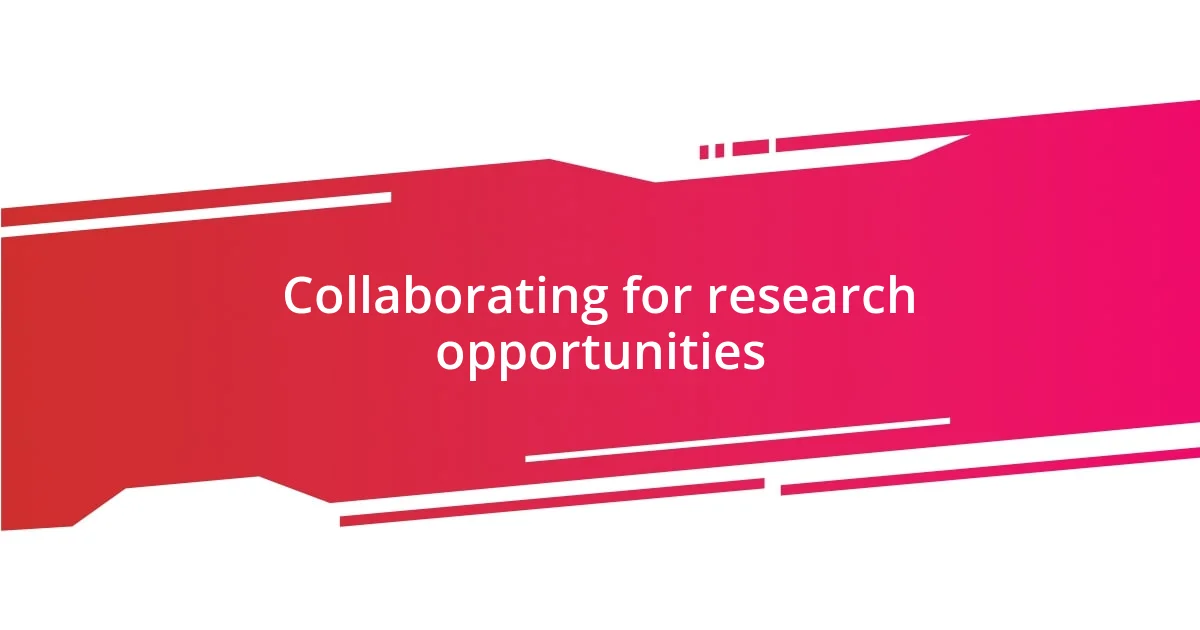
Collaborating for research opportunities
Collaborating with others can often unlock research opportunities that we might not discover on our own. I remember a time when I reached out to a fellow researcher via email after seeing their work on a shared interest in renewable energy. To my surprise, they not only replied but invited me to collaborate on a paper. That experience taught me that taking the initiative to express interest can lead to fruitful partnerships. Have you ever thought about how a simple outreach can change the course of your research?
Moreover, working with colleagues from different disciplines has greatly enriched my research perspective. A few months ago, I joined a cross-disciplinary project that brought together scientists and social scientists to examine climate change impacts. Through our combined expertise, we generated deeper insights than any of us could have achieved individually. It made me realize that collaboration isn’t just about shared workload—it’s about blossoming through diverse viewpoints and methodologies. How often do you seek input from researchers outside your immediate field?
The beauty of collaboration lies in the mutual growth it fosters. I once teamed up with a colleague on a seminar, and in preparing together, I found that discussing our respective strengths led to a more dynamic presentation. We challenged each other’s assumptions and pushed the boundaries of our research narratives, resulting in a session that resonated with attendees. This experience highlighted the importance of collaboration—not just for networking but for enhancing the quality of our work. Isn’t it fascinating how partnership can lead to higher excellence in research?
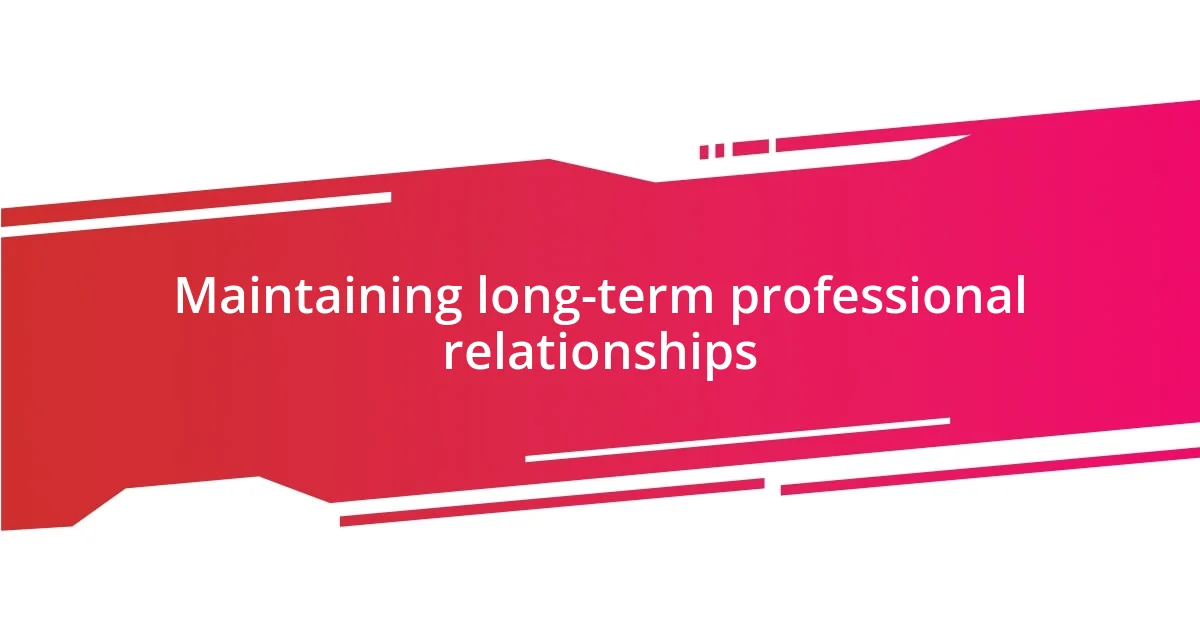
Maintaining long-term professional relationships
Maintaining long-term professional relationships is crucial, and I’ve learned that regular communication is key to keeping connections alive. I make it a point to check in with colleagues every few months, whether it’s sending a quick email to share an article I came across or inviting them for a virtual coffee chat. Don’t you think it feels great to reconnect and see how much we’ve both grown since we last spoke?
Another essential aspect of sustaining these relationships is offering support whenever possible. I remember when a former collaborator reached out during a tough phase in their grant application process. I offered my feedback and shared resources I had found helpful in similar situations. It turned out our conversation not only eased their stress but also reignited my enthusiasm for our shared research area. Is there anything more rewarding than helping others succeed while nurturing your professional ties?
Finally, I’ve found that celebrating milestones—whether big or small—can strengthen bonds significantly. After a friend published their first book, I made sure to send a congratulatory note and share their work on social media. Moments like these show that you’re invested in each other’s journeys. Have you ever thought about how such simple acts of recognition can lead to deeper, lasting friendships in your professional life?








